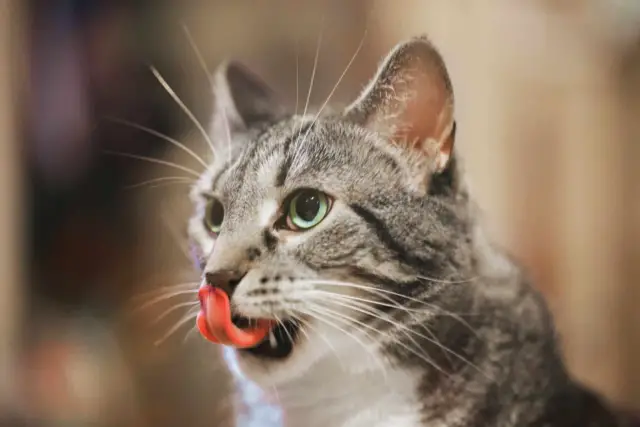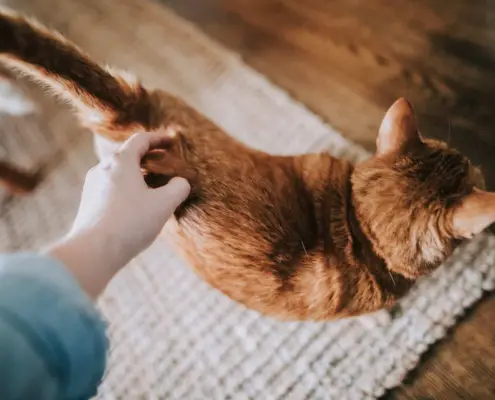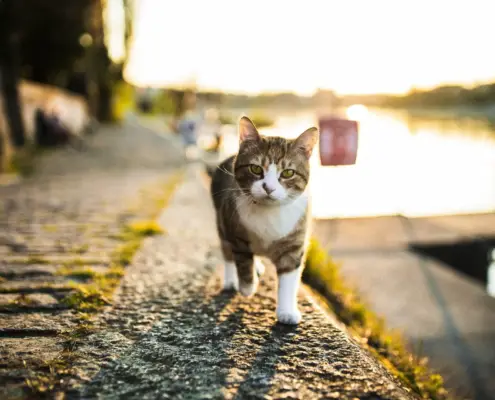Cats are fascinating creatures, known for their independent and sometimes quirky behavior. One behavior that has puzzled many cat owners is their affinity for licking washed hair. It’s not uncommon to find a cat gently licking the hair of their owner after a shower or hair wash. But why do cats engage in this behavior? In this article, we will delve into the reasons behind this intriguing behavior and explore the various factors that contribute to it.

The Instinctual Behavior of Cats
To understand why cats have an affinity for licking washed hair, it’s crucial to examine their instinctual behavior. Cats are natural groomers and spend a significant amount of time grooming themselves. Grooming helps them to keep their fur clean, remove dirt and parasites, and maintain their body temperature. This grooming behavior is deeply ingrained in their instincts and is a vital part of their daily routine.
Reasons Behind Cats’ Grooming Behavior
There are several reasons why cats engage in grooming behavior, including licking washed hair. One possible explanation is that cats are attracted to the scent and taste of shampoo or other hair products. These products often contain fragrances or ingredients that cats find appealing. The scent of freshly washed hair can be enticing to a cat, and they may be drawn to it out of curiosity or simply because they find it pleasant.
Another reason behind cats’ affinity for licking washed hair could be their need for social bonding. Cats are known to groom each other as a way of establishing and maintaining social bonds within their group. When a cat licks their owner’s freshly washed hair, it may be an instinctual way of showing affection and strengthening the bond between them.
The Bond Between Cats and Their Owners
The bond between cats and their owners is a unique and special relationship. Cats often see their owners as members of their social group and display various behaviors to express their attachment. Grooming behaviors, such as licking washed hair, can be seen as a form of social bonding between a cat and their owner. By engaging in this behavior, cats may be seeking closeness and reassurance from their human companions.
The Scent and Taste Appeal of Washed Hair to Cats
Cats have a highly developed sense of smell, and they rely on scent to navigate their environment and communicate with others. The scent of freshly washed hair can be particularly intriguing to cats due to the presence of various fragrances and scented products. Cats may be drawn to the scent of washed hair out of curiosity or because they find it comforting.
In addition to scent, the taste of washed hair can also be appealing to cats. Hair products often contain ingredients that cats find tasty, such as oils or other additives. When a cat licks washed hair, they may be exploring the taste of these products or simply enjoying the texture and sensation of licking.
Cats’ Grooming Behavior as a Form of Affection
Cats are known for their independent nature, but they also have a deep capacity for affection. Grooming behaviors, including licking washed hair, can be seen as a display of affection from a cat towards their owner. By engaging in this behavior, cats are showing their love and care for their human companions.
Understanding Cats’ Grooming Behavior Through Their Senses
To truly understand why cats have an affinity for licking washed hair, it’s essential to consider their senses. Cats have a heightened sense of smell and taste, which play a significant role in their grooming behavior. The scent and taste of washed hair can be enticing to cats, and they may engage in licking as a way to explore and interact with their environment.
Additionally, the texture of hair can be appealing to cats. The softness and smoothness of washed hair may provide a sensory experience that cats find enjoyable. Licking washed hair allows cats to engage with their surroundings and satisfy their natural curiosity.
The Role of Grooming in Cats’ Social Hierarchy
Grooming behavior plays a crucial role in establishing and maintaining the social hierarchy among cats. In a multi-cat household, cats groom each other as a way of showing respect and reinforcing social bonds. When a cat licks their owner’s washed hair, it may be a way of asserting their dominance or expressing their role as a caregiver within the social group.
How to Discourage Cats from Licking Washed Hair
While cats’ affinity for licking washed hair can be endearing, it’s not always desirable. Some cat owners may find this behavior uncomfortable or inconvenient. If you wish to discourage your cat from licking your freshly washed hair, there are a few strategies you can try.
Firstly, you can provide alternative forms of stimulation and attention for your cat. Engage them in play activities or provide interactive toys to keep them occupied. This can redirect their focus away from your hair.
Secondly, you can create physical barriers between your cat and your hair. For example, you can wear a hat or cover your hair with a towel after washing it. This will make it less accessible for your cat to lick.
Lastly, you can use positive reinforcement techniques to reward your cat for not engaging in the behavior. Offer treats or praise when they refrain from licking your hair, and redirect their attention to more appropriate behaviors.
Conclusion
The affinity that cats have for licking washed hair is a fascinating behavior that can be attributed to a combination of factors. From their instinctual grooming behavior to their sense of smell and taste, several elements contribute to this intriguing habit. While it may be a sign of affection and social bonding, some cat owners may prefer to discourage this behavior. By understanding the reasons behind it and employing appropriate strategies, cat owners can create a harmonious environment for both themselves and their feline companions.
If you enjoyed my article, I would appreciate you sharing it with your network.

Sima Ndlebe
Sima writes for CatBuzz. He is interested in Cats, Health and Fitness, and Entrepreneurship.
Published: 9 February 2024



